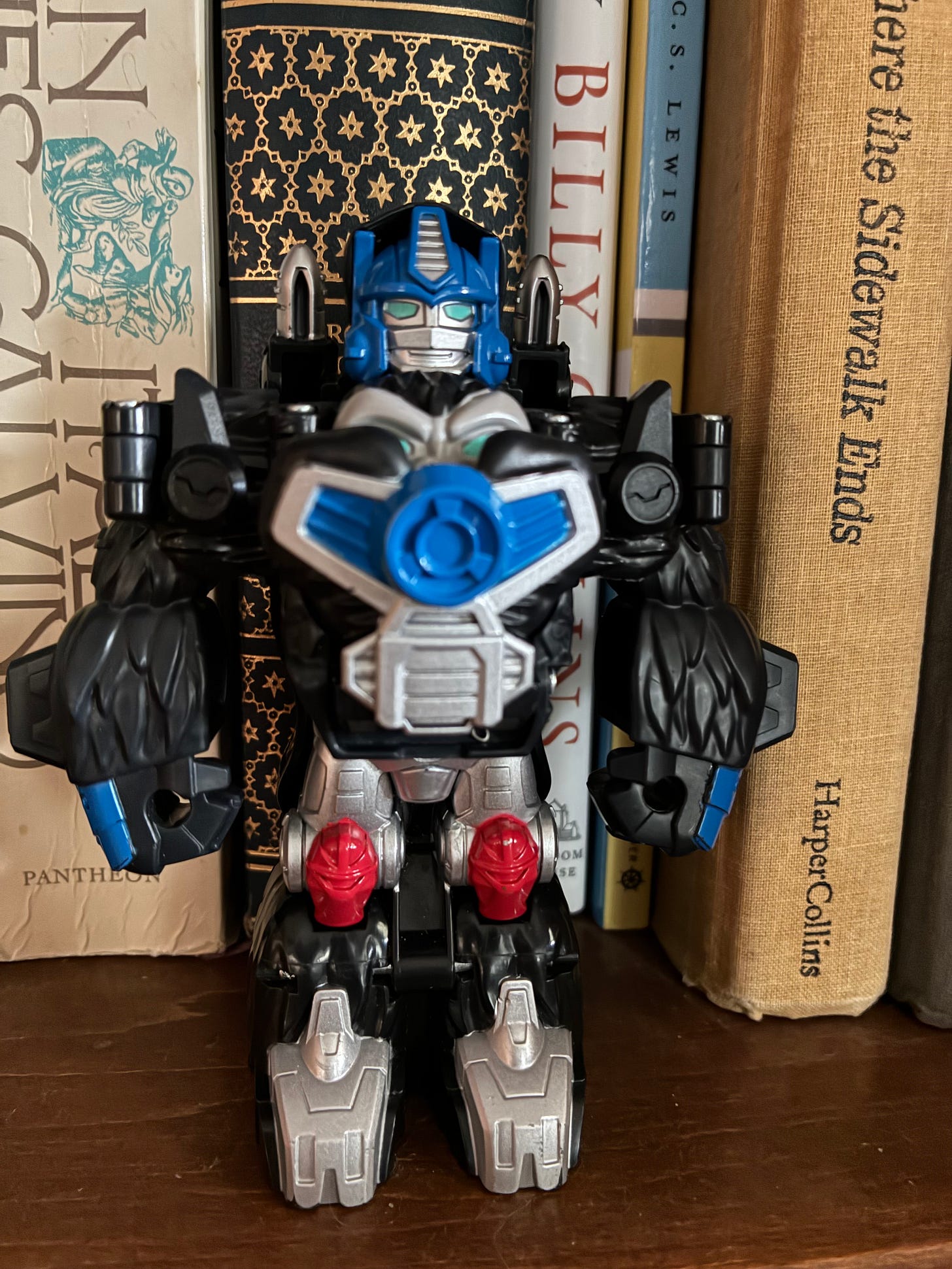Kind of a book review
If you’ve followed THOUGHTMOOT long enough, you’re probably aware of my general distaste for AI. I think it’s useful at best and at worst, contemptible. As a tool, it can help do amazing things, but it’s just that—a tool. Artificial intelligence is incapable of original thought or creation. It’s not alive. And it certainly isn’t a replacement for the human connections so many of us feel are lacking in the world right now.
Because of my stance on this, AI-finding-self-awareness narratives are always a bit troublesome for me. I enjoy Commander Data as much as the next Star Trek fan, but his quest to become human is just not realistic and it never will be. Spontaneous ensoulment of an artificial intelligence is as much a myth as Frankenstein’s monster, because the soul has to be endowed intentionally by the being who ordered the universe. That being said, these stories are important avenues for us to explore what defines us as humans.
Recently I read THE WILD ROBOT by Peter Brown. Lots of people have been talking about this trilogy lately, and it’s even been adapted to film. The book surprised me with its contemplative pacing and earnest humor. The movie is beautiful. My kids all love it.
*Mild spoilers ahead*
My oldest son and I re-watched the movie last week, and as the credits rolled it struck me: this story is anti-AI.
I don’t mean it’s alarmist propaganda warning against the dangers of technological advancement. The hero, a robot named Roz, is not an abomination but a marvel of human invention. She begins her journey as only that, an impressive piece of machinery, and the reader (or viewer) watches her evolve into something much more complex, something that can eventually be called someone. Her story is one of becoming. Becoming an innovator, a provider, an integral part of the community. A friend, a visionary, a nurturer. A person.
All this Roz becomes, and it’s what makes her a hero. Because she’s reaching for something beyond herself, guided by a developing sense of purpose. We want to see her achieve it. And we become so invested in her growth that the threat she faces (that of being discovered and returned to the factory for reprogramming) feels viscerally wrong to us.
THE WILD ROBOT, despite its android protagonist, acknowledges this deep truth about things: our experiences can’t be rendered into a collective, downloaded to a drive and and separated from our individual consciousness, without losing something essential. All the connections we form, form us in turn. Even the inanimate objects around us take on meanings incalculable by actual metrics because of our interactions with them. And this whole idea that a robot can become more than its programming underscores that human tendency to give life to the things we create. AI developing a soul—a ghost, you might say, that resides in the machine—is our idea. We made that up, because we want our creations to reflect our own ability to transform, to reach higher.
Stories like this would never exist if humans didn’t imagine them, because behind the fantasy of self-aware technology is our inescapable dissatisfaction with creations that don’t truly live.
This is what THE WILD ROBOT—both film and book—illustrates so well. Roz, by the end of the story, is her own robot. Separated from the collective mind and mission of her fellow robots, she develops her own value system, her own roots, her own life. She learns how to thrive, not from chatGPT or some clever algorithm, but from her forest-dwelling neighbors—and she enhances their lives with her own perspective.
The robots that come for Roz at the end of the story represent another (truer) kind of AI existence—the one detached from nuance, from individuality, from community. They can’t be reasoned with—they operate on calculations and remote demands. Roz stands out from these beings, in fact she resists them, precisely because she is no longer AI in the sense that her programming controls her. She’s become something much closer to a person. And the AI that pursues her, understandably, can’t comprehend this—yet the audience sees this inability as a sinister defect. We gravitate toward Roz and her bumbling imitation of personhood; we recoil at the coldness of the technological world she came from. We feel no remorse at watching the representatives of that world get crushed by falling trees or ripped apart by bears. We want Roz, the wild robot, to keep her voice and stay wild.
In the end, the story proves nothing about whether an AI can become a person, but what it does prove is something more telling: we humans dream of a world where it’s possible. Why? Because AI isn’t enough for us. We want to create not just mechanisms but life.
Ultimately though, you can’t replicate the essence of humanity, that spark inside us that drives us, that inspires us to love, that roots for the fictional android to find its own identity.
I wdon’t know whether the author intended it this way, but this is how it lands. The heart of THE WILD ROBOT rejects artificial intelligence, its counterfeit humanity, its lock-jawed warmth. It presents a world in which we’ve achieved advancements we can only dream of, and still have to reckon with the disillusionment that says: nothing can replace the connections that make us, and the only things worth pursuing are the ones that bring us closer to our humanity. That’s what makes it a story worth returning to.
Have you read this book or watched the movie? I’d love to hear what you thought about it!





My little sister loves this series and is introducing the movie to me on Friday night! Can't wait! I've heard such good things! Would love to read the book aloud to my girls one day.
Just watched this with my family, actually. Couldn’t agree more!